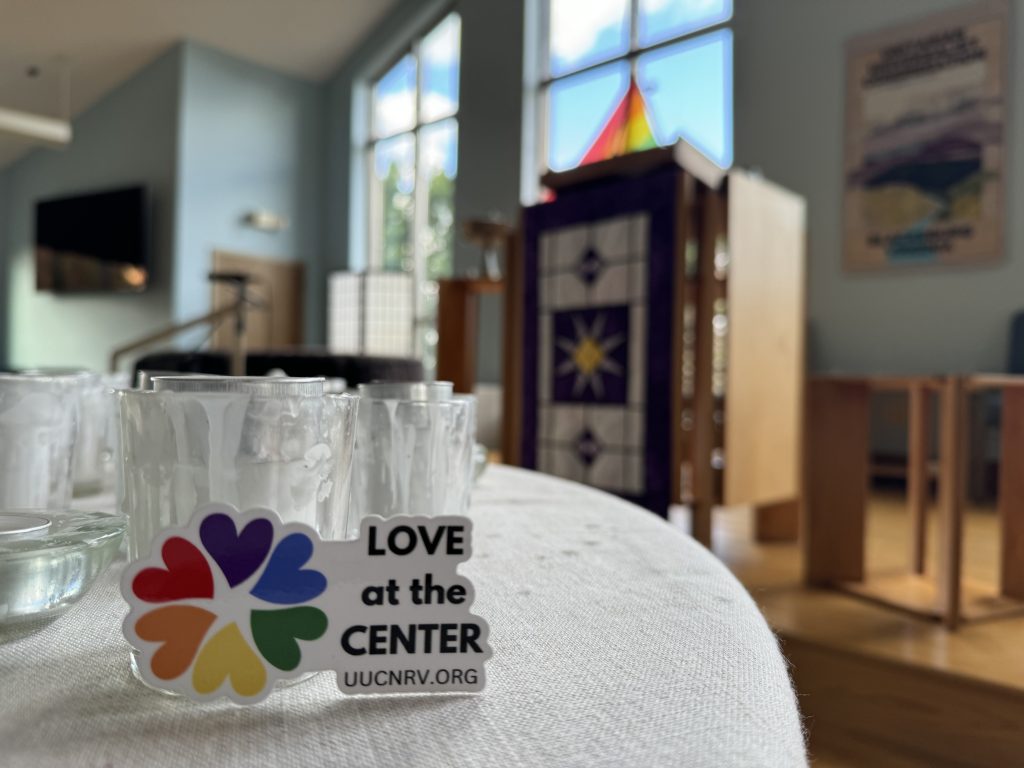Our Beliefs
Unitarian Universalists are people of all ages, people of many backgrounds, and people of many beliefs. We are curious and compassionate thinkers and doers. We create spirituality and community beyond boundaries, working for more justice and more love in our own lives and in the world.

Unitarian Universalism descends from two movements that developed in the 18th and 19th centuries: Unitarianism, which affirmed the unity of God (as opposed to the trinity) and emphasized reason as a test for theological truth; and Universalism, which proclaimed universal salvation for all people. By the mid 1900s, these groups had evolved to share a common philosophy of religious tolerance and ethical responsibility. In 1961, they united as the Unitarian Universalist Association.
Unitarian Universalism draws from our heritages of freedom, reason, hope, and courage, building on the foundation of love. We covenant, congregation-to-congregation and through our Association, to support and assist one another in our ministries.
Love is the power that holds us together and is at the center of our shared values. The values we share include all the following, which we hold as inseparable and deeply interconnected:
- Interdependence: We honor the interdependent web of all existence and acknowledge our place in it.
- Pluralism: We are all sacred beings, diverse in culture, experience, and theology.
- Justice: We work to be diverse multicultural Beloved Communities where all feel welcome and can thrive.
- Transformation: We adapt to the changing world.
- Generosity: We cultivate a spirit of gratitude and hope.
- Equity: We declare that every person is inherently worthy and has the right to flourish with dignity, love, and compassion.
Unitarian Universalism draws from many sources:
- Direct experience of that transcending mystery and wonder, affirmed in all cultures, which moves us to a renewal of the spirit and an openness to the forces which create and uphold life
- Words and deeds of prophetic people which challenge us to confront powers and structures of evil with justice, compassion, and the transforming power of love
- Wisdom from the world’s religions which inspires us in our ethical and spiritual life
- Jewish and Christian teachings which call us to respond to God’s love by loving our neighbors as ourselves
- Humanist teachings which counsel us to heed the guidance of reason and the results of science, and warn us against idolatries of the mind and spirit
- Spiritual teachings of earth-centered traditions which celebrate the sacred circle of life and instruct us to live in harmony with the rhythms of nature
These principles and sources of faith are the backbone of our religious community.
Learn more:
